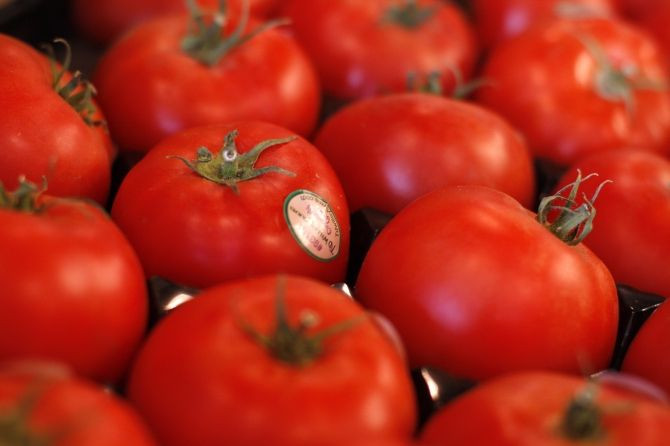Tomatoes Ward Off Stroke

Eating tomatoes lowers the risk of stroke in elderly men, a new study says.
According to the study, published in the latest issue of Neurology, lycopene, found in tomatoes and other fruits, helps lower the risk of stroke.
Lycopene is the substance that gives tomatoes their red color. Aside from tomatoes, lycopene is also found in watermelon, pink grapefruit and guava. One cup of tomato juice provides (240 mL) has about 23 mg of lycopene, Medline Plus says.
The present study was based on more than 1,000 men from Finland between the ages of 46 and 65. Researchers had measured the levels of lycopene in these men at the start of the study. All men were followed for an average of 12 years. Approximately 67 men had suffered a stroke during the study period.
Researchers found that men with higher amounts of lycopene had a 59 percent less chance of having a stroke compared to participants with lower levels of lycopene.
Many studies have suggested that lycopene may help against many types of cancers including prostate, breast, ovarian, bladder, pancreas and lung cancers, but there is no substantial evidence backing up these claims, Medline Plus says.
The risk of stroke depends on certain factors like heredity, age, gender and ethnicity. However, people can still reduce the chances of stroke by adopting a healthier lifestyle. Reducing salt and fats, increasing levels of fruits and vegetables and exercising regularly can all help reduce the risk of stroke.
In 2010, stroke cost the United States an estimated $53.9 billion. This total includes the cost of health care services, medications and missed days of work, says CDC.
"This study adds to the evidence that a diet high in fruits and vegetables is associated with a lower risk of stroke. The results support the recommendation that people get more than five servings of fruits and vegetables a day, which would likely lead to a major reduction in the number of strokes worldwide, according to previous research," said Jouni Karppi, PhD, of the University of Eastern Finland in Kuopio and an author of the study.
Processing tomato juice changes the lycopene into a compound that can be easily absorbed in the body. In the U.S., about 85 percent of dietary lycopene comes from tomatoes.
Published by Medicaldaily.com



























